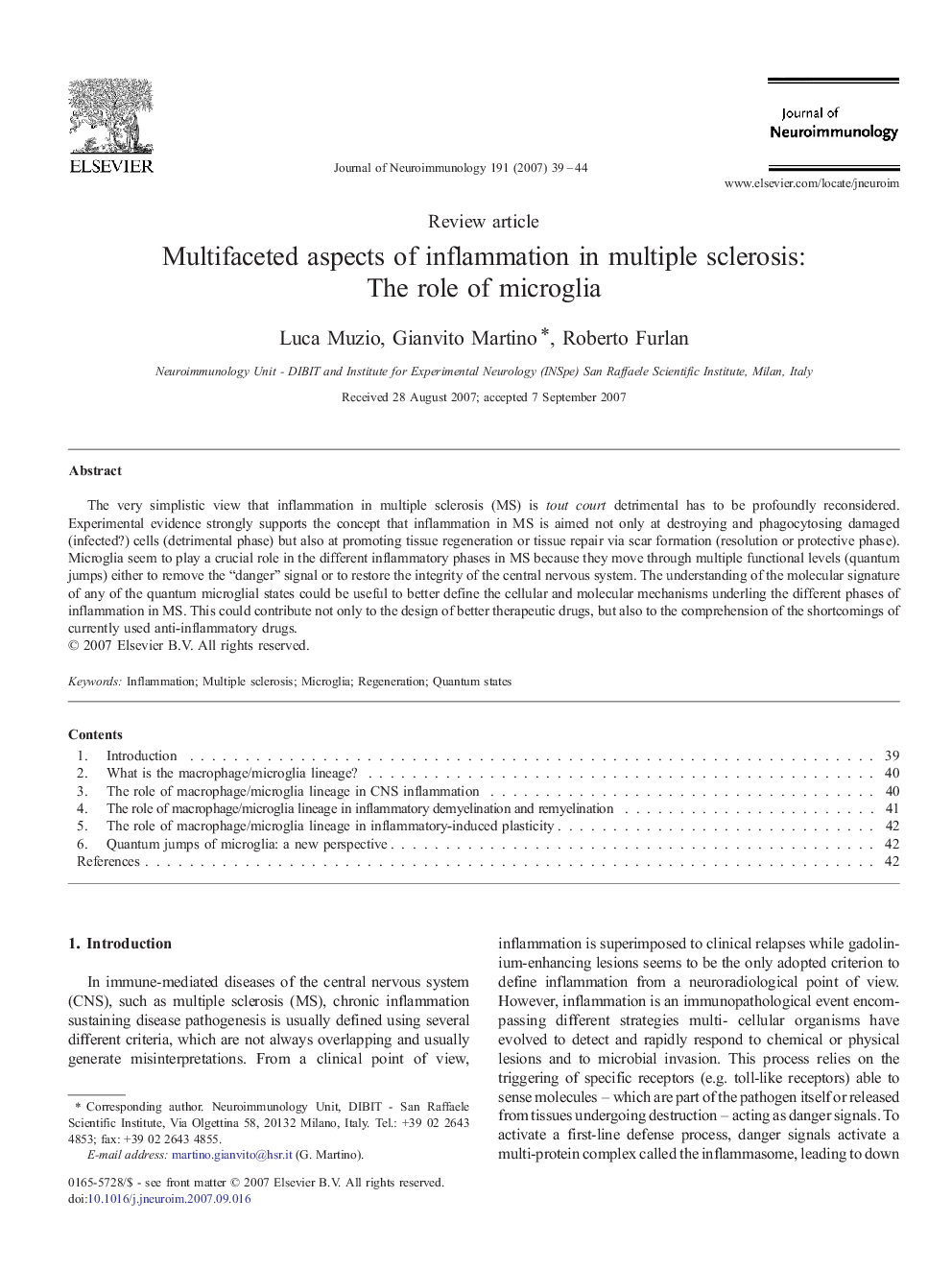| Article ID | Journal | Published Year | Pages | File Type |
|---|---|---|---|---|
| 3065697 | Journal of Neuroimmunology | 2007 | 6 Pages |
The very simplistic view that inflammation in multiple sclerosis (MS) is tout court detrimental has to be profoundly reconsidered. Experimental evidence strongly supports the concept that inflammation in MS is aimed not only at destroying and phagocytosing damaged (infected?) cells (detrimental phase) but also at promoting tissue regeneration or tissue repair via scar formation (resolution or protective phase). Microglia seem to play a crucial role in the different inflammatory phases in MS because they move through multiple functional levels (quantum jumps) either to remove the “danger” signal or to restore the integrity of the central nervous system. The understanding of the molecular signature of any of the quantum microglial states could be useful to better define the cellular and molecular mechanisms underling the different phases of inflammation in MS. This could contribute not only to the design of better therapeutic drugs, but also to the comprehension of the shortcomings of currently used anti-inflammatory drugs.
